'If you have read the Gita, Krishna never gives a guarantee, though that is what we, as humans, crave -- which is why we buy into the cults of occult godmen who assure us that we will surely get money, meaning, and power.'
A fascinating excerpt from Dr Devdutt Pattanaik's The Stories We Tell: Mythology To Make Sense Of Modern Lives.
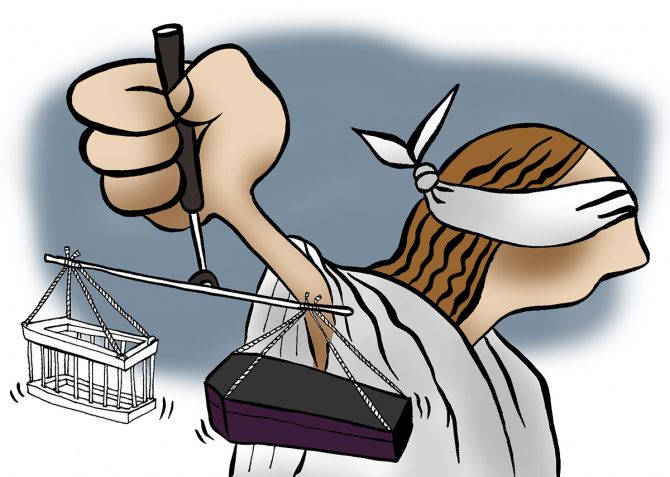
You have probably heard the phrase 'Karma is a bitch'.
What is implied here is that karma is a form of justice. This is not true.
Justice is a European concept based on a human living one life between birth and death, during which he receives justice, whether temporal or spiritual. In Abrahamic religions, God is the judge.
'As you sow, so shall you reap' is not karma. That's a line from the Bible.
Krishna always maintained in the Bhagavad Gita that one must perform actions without worrying about the consequences, 'Phal ki chinta mat karo (don't worry about the fruit of your labours).'
You may sow something, but you may get something else altogether, or nothing at all, and that's okay.
People often think of the Bhagavad Gita as a motivational talk that led to the Pandavas winning the war.
Yes, the Pandavas won the war, but look at what happened in the war.
All their kids were killed -- Bhima's son Ghatotkacha, Arjuna's son Abhimanyu, Draupadi's son Upaveda are all killed.
So, what kind of victory is this where all your progeny are murdered?
If you have read the Gita, Krishna never gives a guarantee, though that is what we, as humans, crave -- which is why we buy into the cults of occult godmen who assure us that we will surely get money, meaning, and power.
The Bhagavad Gita only helps us cope with uncertainty.
As the idea of rebirth becomes important during the Upanishads, the meaning of karma changes from the purely yajna-based ritualistic duties to something metaphysical.
The idea of burial versus cremation becomes important here -- those who will be born again are burned, and those who won't, like the enlightened matha gurus, will be buried.
Cremation and the pouring of ashes into the river are related to the concept of rebirth.
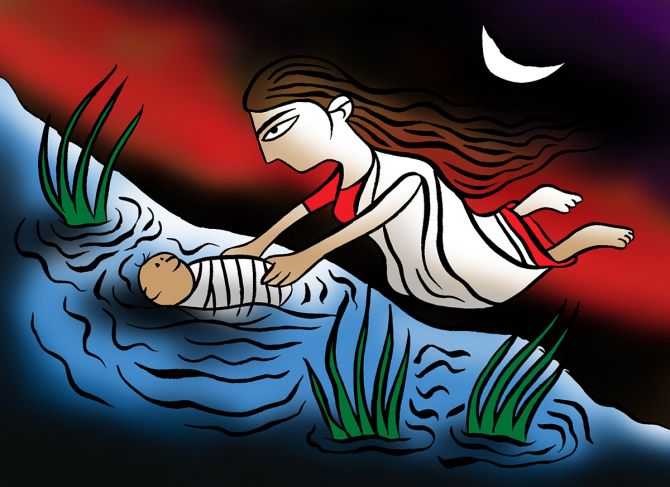
In the Mahabharata there is the story of Shantanu and Ganga.
When they were getting married, Shantanu vowed that he would not ask her any questions at any point, promising unfettered freedom.
But slowly, over the course of the marriage, Ganga kills each of the seven children she begets from Shantanu; he is forced to remain silent due to the vow he gave her.
But when it comes to the eighth child, pushed to breaking point, Shantanu stops her as she is about to drown the child.
From one perspective, you can say Shantanu is the good person here, saving the child, and Ganga is the bad one.
But because Shantanu is a mere human, his knowledge is limited, while Ganga, a goddess, knows her children were Vasus in their previous birth, and were cursed to be born on earth; the only way in which they could regain their immortal status was through a very short life.
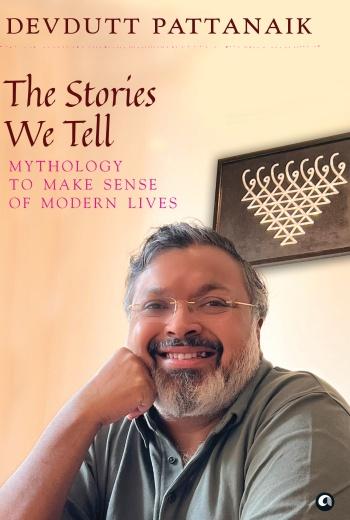
She was thus only attempting to liberate them. So, there is a bigger story involved.
In saving the eighth child Ganga tells Shantanu, 'You haven't saved your son. He will not marry, and will raise someone else's child. He won't become a king, but will take care of someone else's kingdom. And in the end, he won't even die the death of a noble warrior at war. He will be killed by a napunsaka (someone of the third gender).'
So, who was right in this story? The idea of rebirth makes things complicated.
Karma makes it difficult to judge the right from the wrong, the good from the bad, as we have to factor in actions from previous lives.
Similarly, most people would find the story of Ajamala in the Bhagavata Purana unfair.
Here is an awful human, who on his deathbed calls out to his son 'Narayana'.
But only because that is also the god's name, and this was his last word, he gets to live in Vaikuntha in the afterlife. Is this fair?
Fair or not, it is karma.
This excerpt from The Stories We Tell: Mythology To Make Sense Of Modern Lives by Dr Devdutt Pattanaik has been published with the kind permission of the publishers, Aleph Book Company.




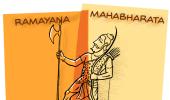





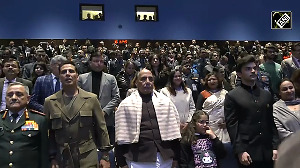
 © 2025
© 2025